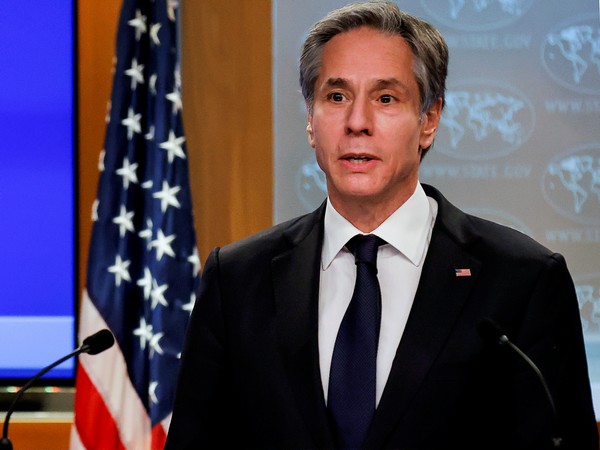Blinken tells China's Wang peace in Taiwan Strait is vital
"For our part, the Secretary made crystal clear, that in accordance with our long-standing one-China policy, which again has not changed, the maintenance of peace and stability across the Strait is absolutely, vitally important," the official said. Tensions over Taiwan have soared after a visit there in August by U.S. House Speaker Nancy Pelosi and an explicit pledge by U.S. President Joe Biden to defend the self-governed island, words that China said sent the wrong signal to those seeking an independent Taiwan.

- Country:
- United States
U.S. Secretary of State Antony Blinken told his Chinese counterpart on Friday that the maintenance of peace and stability over Taiwan was vitally important, as the two met with tensions high over the Chinese-claimed island.
A senior U.S. administration official told reporters after Blinken's talks with Chinese Foreign Minister Wang Yi on the margins of the United Nations General Assembly in New York that Taiwan was the focus of the meeting. "For our part, the Secretary made crystal clear, that in accordance with our long-standing one-China policy, which again has not changed, the maintenance of peace and stability across the Strait is absolutely, vitally important," the official said.
Tensions over Taiwan have soared after a visit there in August by U.S. House Speaker Nancy Pelosi and an explicit pledge by U.S. President Joe Biden to defend the self-governed island, words that China said sent the wrong signal to those seeking an independent Taiwan. Biden's statement was the latest instance of his appearing to go beyond a long-standing U.S. policy of "strategic ambiguity" which does not make it clear whether Washington would respond militarily to an attack on Taiwan.
His comments were also the most explicit to date about committing U.S. troops to the defend the island, although the White House insisted its Taiwan policy had not changed. In a phone call with Biden in July, China's leader Xi Jinping warned about Taiwan, saying "those who play with fire will perish by it."
After Pelosi's solidarity visit to Taipei early last month, China deployed scores of planes and fired live missiles near the island. The State Department had said earlier Blinken's meeting with Wang was part of Washington's ongoing efforts to "maintain open lines of communication and manage competition responsibly."
In a speech to the Asia Society think tank in New York on Thursday, Wang said the Taiwan question was growing into the biggest risk in China-U.S. relations. "Should it be mishandled, it is most likely to devastate our bilateral ties," Wang said, according to a transcript from China's Embassy in Washington.
Likewise, the decades old U.S. law outlining Washington's unofficial relations with Taiwan – which Beijing considers null – makes clear that Washington's decision to establish diplomatic relations with China in 1979 "rests upon the expectation that the future of Taiwan will be determined by peaceful means." China sees democratically governed Taiwan as one of its provinces. Beijing has long-vowed to bring Taiwan under its control and has not ruled out the use of force to do so.
Taiwan's government strongly objects to China's sovereignty claims and says only the island's 23 million people can decide its future. Earlier in the week, Wang met with former U.S. Secretary of State Henry Kissinger, the architect of U.S. relations with communist China, and said a "peaceful reunification" with Taiwan was China's aspiration.
However, he said the possibility of a peaceful resolution was diminished by ever more "rampant" Taiwanese independence sentiment and he invoked a Chinese proverb: "It is better to lose a thousand soldiers than an inch of territory."
(This story has not been edited by Devdiscourse staff and is auto-generated from a syndicated feed.)
ALSO READ
US Coast Guard says boardings of Chinese fishing vessels in South Pacific legal
US Coast Guard says boardings of Chinese fishing vessels in South Pacific legal
Taiwan says it detected 10 Chinese military aircraft, 7 naval vessels around nation
Iran's Khamenei says Israel 'must be punished' for Syria embassy attack
Iran's Khamenei says Israel 'must be punished' for Syria embassy attack










